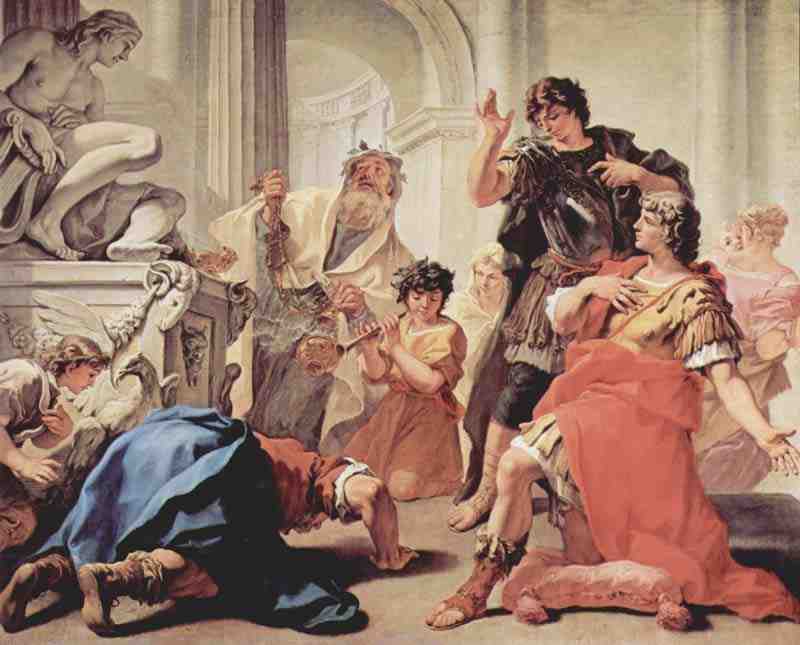
- #Lucius tarquinius collatinus stolen women full#
- #Lucius tarquinius collatinus stolen women trial#
- #Lucius tarquinius collatinus stolen women series#
- #Lucius tarquinius collatinus stolen women free#
That there was an inscription down there was also known. One specific conjecture was that this was Faustulus' tomb.
#Lucius tarquinius collatinus stolen women free#
These included an altar, part of a large free standing column, and a short stone pillar covered in some of the Earliest Latin we have and the place had been intentionally buried with various objects Later Roman writers knew about the stone and rather than considering it the religious shrine that archaelogists are pretty sure it was assumed that it was connected to Romulus.

They were excavated at the turn of the 19th CE and earlier structures were found.
#Lucius tarquinius collatinus stolen women series#
At one end of the Forum close to the Capitoline Hill, a few minutes from the Temple of Jupiter Stator and next to the main platform where speakers addressed people a series of slabs of distinctively black stone forming a rectangle of about 4x3.5 meters marked out with a low stone border was set in the pavement of the Forum before the end of the first century BCE. He didn't tell them until it became necessary and others also figured it out with a twin in custody. The alleged foster father of Romulus and Remus (the herdsman that either found the boys or was married to the whore that found them) he raised the twins and deduced that they were royal.
#Lucius tarquinius collatinus stolen women full#
Most of his early books are full of legends but modern archaeologists have found a lot of confirmation fro Livy's account of the Rape of the Sabine women and the urbanization of the Forum Often he relies on Polybius (which makes him more reliable there) or Roman 'annalists' who invented facts to serve their political purposes (less reliable). He learned everything from books rather than experience. Livy uses many rhetorical archetypes and methods and invents the speeches.įor his history he focused less than Polybius and Tacitus. Livy did believe he eventually had to publish his own account for posterity. This was because Livy wouldn't have been able to publicly criticize his patron for grisly violence that occurred early in his career. Livy only published the final 22 books on the rise of Octavian-Augustus (a period from 49 -43) until AFTER the emperor Augustus died in 14 CE. All we have extant trace the history as far as 167 BCE. The whole work surveys Roman history from 730 BCE - 9 BCE. His work was called Ab Urbe Condita and we have 35 left of the total 142. Livy supposedly tutored the young Claudius (emperor from 41-54 CE). The emperor Augustus was his 'patron' and allowed Livy to compose a 142 book history. Unlike other Roman historians, he never served int he Senate or held a high office. 59 BCE - 17 CE) he was born in Padua in Northern Italy, which was considered an "intellectual backwater." He was trained very highly in Latin literature though his Greek wasn't the best.

:max_bytes(150000):strip_icc()/bust-of-lucius--junius-brutus--capitoline-brutus---founder-of-the-roman-republic-culture--roman---p-artist--werner-forman--567589271-5b709e0a46e0fb0025554484.jpg)
We also have many letters and part of a poem Cicero wrote about his own achievements. He returned a year later and his political career was never the same. In 58, he left the city when public tide was against him.
#Lucius tarquinius collatinus stolen women trial#
Cicero had them killed without trial and was named pater patriae by his followers. He arrested many and on December 5 summoned the senate to discuss what to do with those in custody. Then he worked with some Gauls that had been brought into the conspiracy to ferret out all that remained in the city. In a speech tto the Senate he succeeded in making Catiline leave. The senate in October issued a decree allowing Cicero as consul to make sure the state came to no harm. Formally denounced and frightened Catiline out of Rome the next day. Almost assassinated on Nov 7 but avoided it due to a tip off. Mainly he was known for his talent in the court and even attained celebrity status allowing him in 64 BCE to win the election for consul in the following year (63). He was from a rich, land-owning family and was from Arpinum, about 70 miles (a day journey at least) from Rome he was the first prominent member of his family in Rome. His head and right hand were pinned up in the center of Rome. He was murdered in 44 BC in the civil wars following Julius Caesar's assassination.

It is largely through Cicero's writings that we see the Roman world of the first century and its history. He was one of the individuals meant to be assasinated. He was consul in 63 during the time of the Catilinarian conspiracy. Marcus Tullius Cicero, a famous orator, philosopher, priest, poet and politician.


 0 kommentar(er)
0 kommentar(er)
